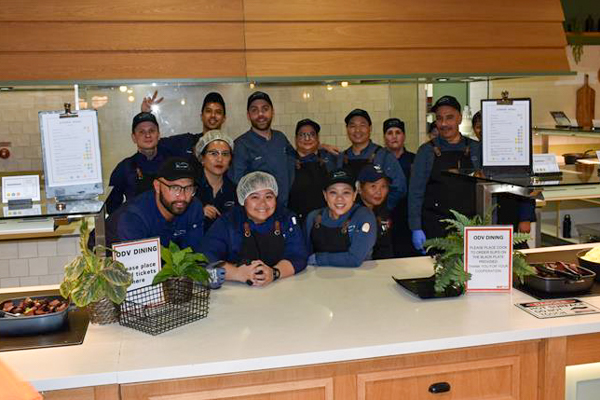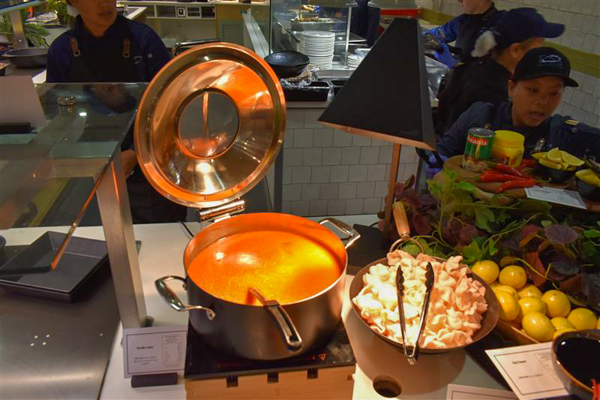Sustainability on the Menu at Olympic Dam
At BHP Olympic Dam, our ESS team’s bold rethink of food services has delivered measurable environmental gains while increasing resident satisfaction, proving that sustainable food solutions and quality can go hand-in-hand. By reimagining the menu and service model, the team demonstrated how thoughtful changes in food choices can actively serve a better future for our planet.
Smarter, Sustainable Food Solutions
Driven by a desire to reduce carbon emissions without compromising culinary standards, the team introduced a series of sustainable food solutions and strategic adjustments. Along with a menu change, they will introduce reusable containers, replacing plastic, a shift that will have the potential to prevent more than 750,000 single-use plastics from entering landfill each year.
“Our focus was reducing food waste and improving efficiency, without sacrificing variety,” shares Jordan Drysdale, Executive Chef.

“Streamlining cook-to-order items and aligning portions with standardised recipes helped us cut waste while maintaining quality. So, instead of offering roast meats every night, we shifted to a three-day rotation, complemented by an alternating cook-to-order grill menu featuring chicken, steak and fish. These changes not only reduced reliance on high-emission proteins but also introduced more economical cuts and increased variety.”
Dishes such as curries and goulashes were expanded to provide hearty, comfort food alternatives that use a broader range of ingredients. Unlike traditional roasts, which often consist of a single protein, these dishes allow for more vegetables and grains, further lowering the carbon footprint per meal.
“We know residents eat with their eyes first, so we started by listening to residents on what they wanted, then crafted a menu that brings balance and variety,” says Jordan.
“With a focus on consistency and presentation, we trained our Chefs to ensure they were putting extra effort into presenting lower-emission dishes in a way that made them just as appealing as a steak or chicken breast.”
Tracking the Journey
The impact was immediate. Over the year, the Olympic Dam site saw an 8.3% reduction in emission intensity compared to the previous year, a clear indicator that small, strategic changes can lead to significant environmental benefits.
Feedback on the sustainability initiatives from both residents and the client has been overwhelmingly positive, with frontline Catering Teams actively shaping and refining offerings based on real-time insights. Through targeted education and engagement, residents have been brought along on the sustainability journey—gaining a clear understanding of the ‘why’ behind each change. When residents see the impact of their actions, they feel empowered to get involved and make it part of their everyday habits.
Additionally, clients can now see the impact of their sustainability efforts in real time, thanks to Compass Group Australia’s (CGA) live emissions tracking, developed in partnership with our Sustainability team and decarbonisation specialists Planet FWD.
“By working with Planet FWD, we are equipping our culinary teams with the tools to quantitatively review menus to give clients, like BHP, real-time visibility into their environmental impact,” shared Simon Jackson, Head of Sustainability.
“It helped us pinpoint high-impact categories and make transparent, data-led decisions that support climate reporting and long-term sustainability.”

By integrating with the Foodbuy product database, the platform not only supports climate reporting compliance but also equips clients with actionable data to drive meaningful change.
“The 8.3% improvement in emission intensity is a testament to the power of collective action,” says Simon, “and aligns with CGA’s broader strategy to help clients meet their climate goals through practical, data-informed solutions.”
Want to learn more about how our teams stop food waste? Click here.
